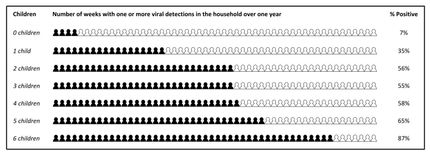Cervical cancer vaccine should include boys, says expert
Advertisement
The UK Government should extend the planned cervical cancer vaccination programme to teenage boys, as they contribute to the transmission of the disease, says an infectious diseases expert. Dr Paul Yeo says that although the vaccination programme is a welcome step in reducing deaths, by not vaccinating boys, the Government risks leaving a ‘pool of infected individuals’ who could spread the virus to women later in life when the effect of the vaccination has potentially worn off.
Dr Yeo also suggests that cost may have been a factor in the Government selecting the current vaccine over another which also protects against other harmful strains of human papillomaviruses (HPVs), rather than just two of the strains. The development of 70% of all cervical cancers can be linked to infection by human papillomaviruses.
From 1 September, girls aged between 12 and 13 in the UK will be vaccinated against certain strains of HPV with a catch-up campaign for girls aged up to 18 starting in autumn 2009.
Dr Yeo, who specialises in virology and infectious diseases, says: “I would question why boys are not included in this vaccination programme as it is, after all, a sexually transmitted disease which can lead to the cancer. Males can be considered the vehicle for the transmission of these viruses with the population. It is not known yet how long the vaccine will protect. Even with the use of booster jabs, protection may wane after ten years or so. These women will be vulnerable to infection later. “By not vaccinating boys, we are potentially leaving a pool of infected individuals who could spread the viruses to women later”.
There are over a hundred known HPVs and the most common presentation of an infection is as a wart or verruca. Two of the strains, HPV16 and HPV18, are linked to cervical cancer. These are the two strains in the vaccine chosen by the Government.
Dr Yeo, of Durham University’s School of Medicine and Health, comments: “In addition to the two strains strongly linked to cervical cancer, there are other HPVs associated with sexual diseases, notably HPV 6 and 11. They are responsible for up to 90% of genital warts. “The vaccine chosen by the Government does not protect against these, yet there is a vaccine, called Gardasil, that will protect against all four viruses. Perhaps the higher cost of this particular vaccine has led the Government to choosing the current vaccine”.















































